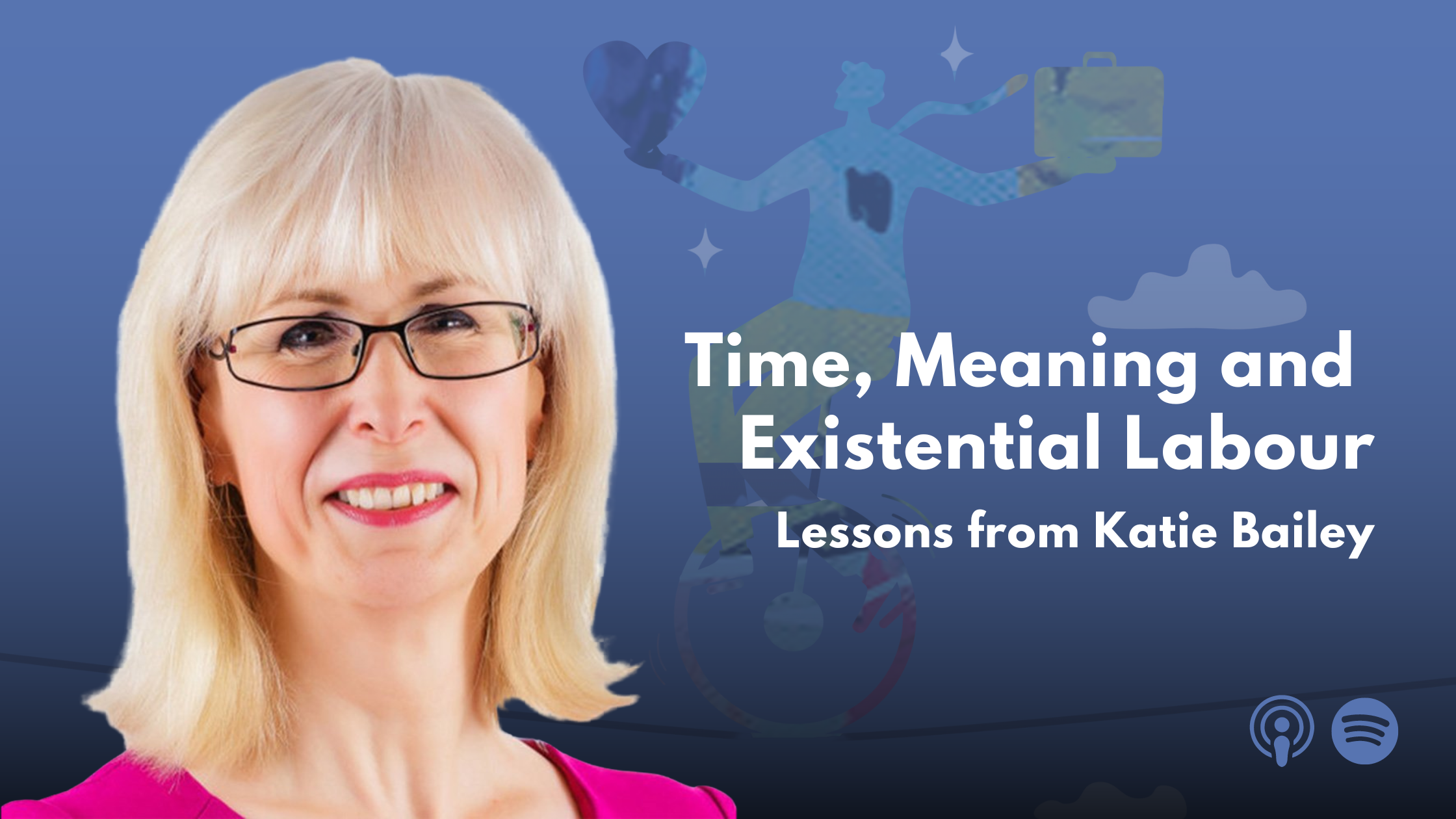In this episode of Meaningful Work Matters, Andrew sits down with Dr. Todd B. Kashdan, Professor of Psychology at George Mason University and author of "The Art of Insubordination: How to Dissent and Defy Effectively."
As one of the main figures in the positive psychology movement, Dr. Kashdan brings over 20 years of research on purpose, meaning, and well-being to this conversation about the value of principled rebellion in creating more meaningful work environments.
The Evolution of Purpose Research
The conversation begins with a reflection on how research on purpose and meaning has evolved over the past two decades. Kashdan highlights a key insight: "A lot of the things that were originally discussed as the defining features of purpose in life are actually things that could amplify it, or there are things in the environment that could influence it."
This distinction is crucial because it shifts our focus to potential intervention targets.
For example, rather than seeing an enriching environment as an inherent part of having purpose, we can now explore how factors like green spaces might influence the development of purpose in young people.
Kashdan also emphasizes that while disadvantaged circumstances can make it harder to commit time and effort to one's purpose, they don't inherently prevent someone from having a sense of purpose.
This nuanced understanding opens up new avenues for supporting purpose development across diverse populations.
The Value of Principled Rebellion
The heart of the conversation centers on Kashdan's recent book, "The Art of Insubordination." He argues that fostering principled rebellion is crucial for creating more innovative, inclusive, and meaningful work environments. Kashdan presents an equation of principled insubordination:
(Defiance x Authenticity + Contribution) / Social Pressure
This equation highlights the importance of genuine, constructive dissent in the face of social conformity pressures.
Kashdan asserts that "Dissent opens people's minds, conformity closes people's minds." Even when a dissenting idea is ultimately wrong, it stimulates "cognitive liberation," encouraging more creative problem-solving within the group. He further argues that "permitting and embracing dissent unlocks the benefits of diversity." It's not enough to have diverse team members; organizations need to create environments where unique perspectives are truly heard and valued.
Navigating the Challenges of Principled Rebellion
While advocating for more principled rebellion, Kashdan doesn't shy away from discussing the potential pitfalls. He introduces the concept of the "Black Sheep Effect," where dissenters often face harsher criticism from their in-group than outsiders would. This can make speaking up emotionally challenging. He also discusses the "Power Paradox," noting a tendency for successful dissenters to become inflexible once they gain majority support, potentially stifling future innovation.
Kashdan acknowledges that embracing dissent can create short-term inefficiencies but argues it leads to more robust, innovative solutions in the long run.
Strategies for Fostering Constructive Dissent
Kashdan offers several practical strategies for individuals and organizations looking to cultivate healthier dissent. He recommends that individuals diversify their identity portfolio, investing in multiple dimensions of their identity beyond work. This creates resilience, allowing people to better weather potential backlash from speaking up.
For organizations, he emphasizes the importance of separating task conflict from relationship conflict. This distinction allows for more productive discussions about ideas or methods without damaging working relationships.
When dissenting, individuals should focus on how their ideas contribute to shared goals rather than simply opposing the status quo. Kashdan also stresses the importance of creating safe spaces for minority perspectives. Even as formerly marginalized groups gain acceptance, it's crucial to maintain spaces where unique cultural identities can be fully expressed and honored.
Implications for Meaningful Work
This conversation has profound implications for how we think about creating meaningful work environments. It underscores the importance of psychological safety, where people feel secure expressing dissenting views without fear of personal repercussions. Leaders must recognize that fostering meaningful dissent often involves navigating complex trade-offs between short-term efficiency and long-term innovation.
Kashdan's insights challenge us to redefine success in organizational culture. Rather than seeing unanimity as a sign of strong culture, organizations should celebrate constructive disagreement as a marker of psychological safety and innovation potential. For individuals, engaging in principled rebellion can be a powerful source of meaning, allowing them to align their work with deeply held values and contribute to positive change.
By fostering environments that welcome principled rebellion, organizations can unlock greater innovation, inclusivity, and, ultimately, more meaningful work for all.
Resources for further exploration:
The Art of Insubordination: How to Dissent and Defy Effectively by Todd B. Kashdan
Origins of purpose in life: Refining our understanding of a life well lived by Todd B. Kashdan & Patrick E. McKnight
Differential contributions of majority and minority influence by Charlan J. Nemeth
The Power Paradox: How We Gain and Lose Influence by Dacher Keltner





